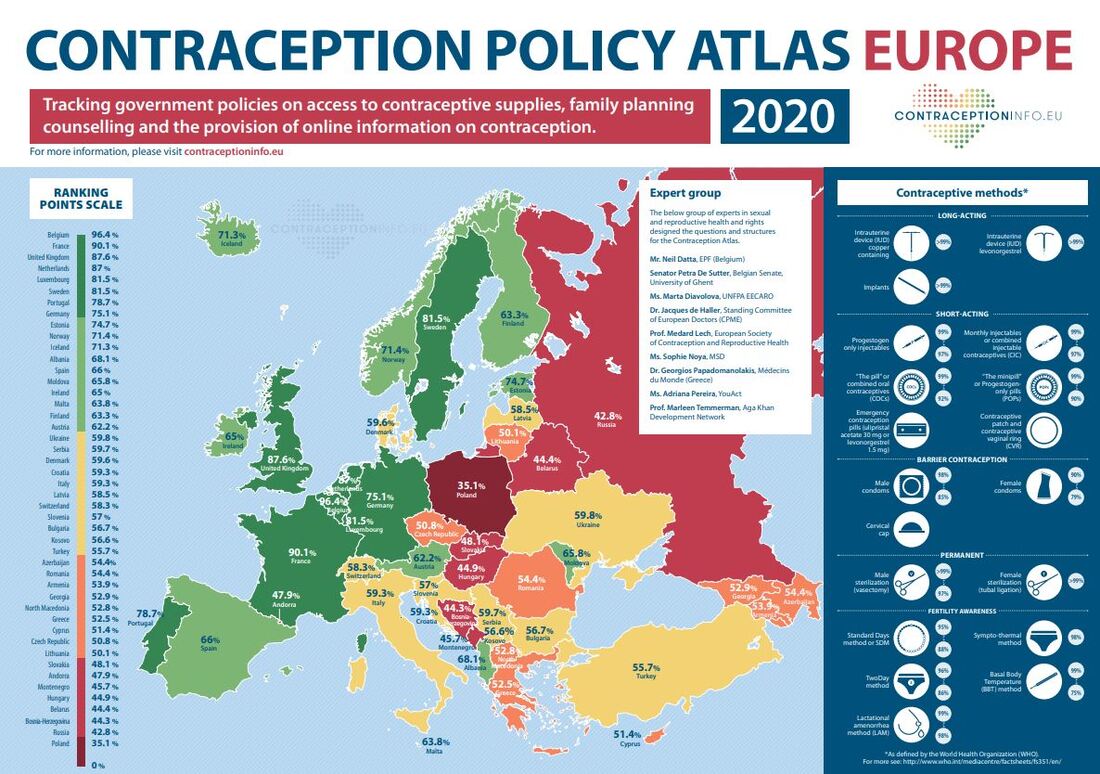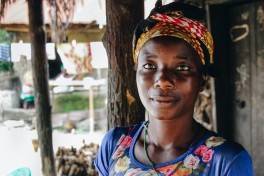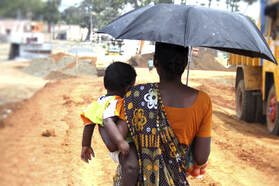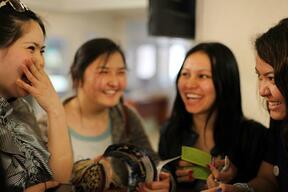
Body&Rights, the e-learning on sexual and reproductive health and rights internationally, developed by Sensoa and the SRHR Working Group of Be-cause Health, the Belgian platform for international health, is fully up-to-date.
 Body&Rights, the e-learning on sexual and reproductive health and rights internationally, developed by Sensoa and the SRHR Working Group of Be-cause Health, the Belgian platform for international health, is fully up-to-date. Since the beginning of the war in Ukraine more then 4,6 million Ukrainians or no less then a quarter of the population have fled to neighbouring countries, mainly Poland, Hungary, Romania, Moldova, Slovakia and Belarus. Over 7 million Ukranians are internally displaced. Women and children make up the majority of Ukranian refugees and their human rights are at risk.
 Picture by Jordhan Madec on Unsplash Picture by Jordhan Madec on Unsplash In 2021, the UK Government is moving to further reduce its aid budget from 0.7% of gross national income (GNI) to 0.5%. Analysis of estimated funding between 2019 and 2022 compared to 2015 to 2018, indicates that gender equality focused programming is severely affected, and women and girls will suffer disproportionately from reductions in funding to critical sectors. The Commonwealth Development Office (FCDO) said these changes are the result of COVID-19’s impact on public finances.  Copyright EPF Copyright EPF In the 2020 Contraception Policy Atlas, Belgium stands out with a whopping 96.4% score, leaving the 2nd in rank – France – far behind. Belgium beat France by improving women’s access to emergency contraception and reimbursing contraception for women under the age of 25. Former Chair of the 'Parliamentarians for the 2030 Agenda' and recently appointed Minister of Pensions in Belgium’s new federal government, Karine Lalieux has been one of the driving forces behind the new reimbursement schemes. The Contraception Policy Atlas developed by EPF compares 46 countries by looking at their policies regarding access to contraceptives, including the reimbursement schemes and family planning counselling as well as at the available public online information.  Photo by Joshua Hanson Photo by Joshua Hanson Guttmacher’s recently published 2019 “Adding it Up” report captures the shortages in sexual and reproductive health services in low and middle income countries (LMIC). The research institute calculated what it would take to bridge the gap. COVID-19 is endangering the safety of women and girls by cutting off access to contraceptive care23/6/2020
 The effects of the current health crisis are far-reaching and are still unwinding. But it is clear that the most marginalised will be the hardest hit. Reproductive freedom is not a reality for many women across the globe. For too many women, access to quality family planning still depends on where they live and how much money they make.  Alexander De Croo. Copyright: Cynthia Vertessen Alexander De Croo. Copyright: Cynthia Vertessen In a powerful joint statement, 58 countries, including Belgium expressed their concern about the impact of COVID-19 on women and girls’ human rights, the deepening of existing inequalities and the worsening discrimination of other marginalised groups such as persons with disabilities and people living in extreme poverty. To raise awareness of the unmet need for family planning, 12 Belgian members of parliament of 9 different political parties revealed the size of their families to the Belgian public. They did so in a joint video message, in which they explained they were free to decide on the size of their family, while 214 million women in the Global South who want to avoid or postpone a pregnancy, cannot do so, because they lack access to contraceptives.
 Quarantine affects the access to contraceptives for women worldwide: Contraceptives are threatening to become scarcer and scarcer. This is due to different factors. For example, large NGOs as well as contraceptive manufacturers warn that the supply chains of various contraceptive products are severely disrupted. China, the world's second-largest exporter of pharmaceuticals, has closed several drug production plants, which in turn has caused delays in Indian plants producing generic drugs, including anticonception. The demand for long-term contraceptives (such as the coil or the implant) will increase. For example, after Trump took office as president of the US, the demand for coils increased as women feared that access to other contraception would become more difficult. As governments around the world are severely restricting the mobility of their citizens, the use of contraceptives will also decline. Particularly women who depend on public transport to travel, or who are currently without income, may find it difficult to get anticonception prescriptions and buy anticonception. What's more, family planning clinics might be temporarily closed. The reduced access to contraceptives comes on top of the already existing needs of women. 214 million women in the Global South who want to use contraceptives already had no access to it before the crisis. Their numbers are increasing.  Adolescent girls. Copyright IPPF EN Adolescent girls. Copyright IPPF EN “Belgium is determined to build a world in which no one, not a single child, not a single young person, not a single woman nor a single girl is left behind.” These were the closing words with which Belgium reconfirmed its strong commitment to the full implementaton of the International Cairo Programme of Action (ICPD) at the 52nd CPD, 1-5 April 2019. |
